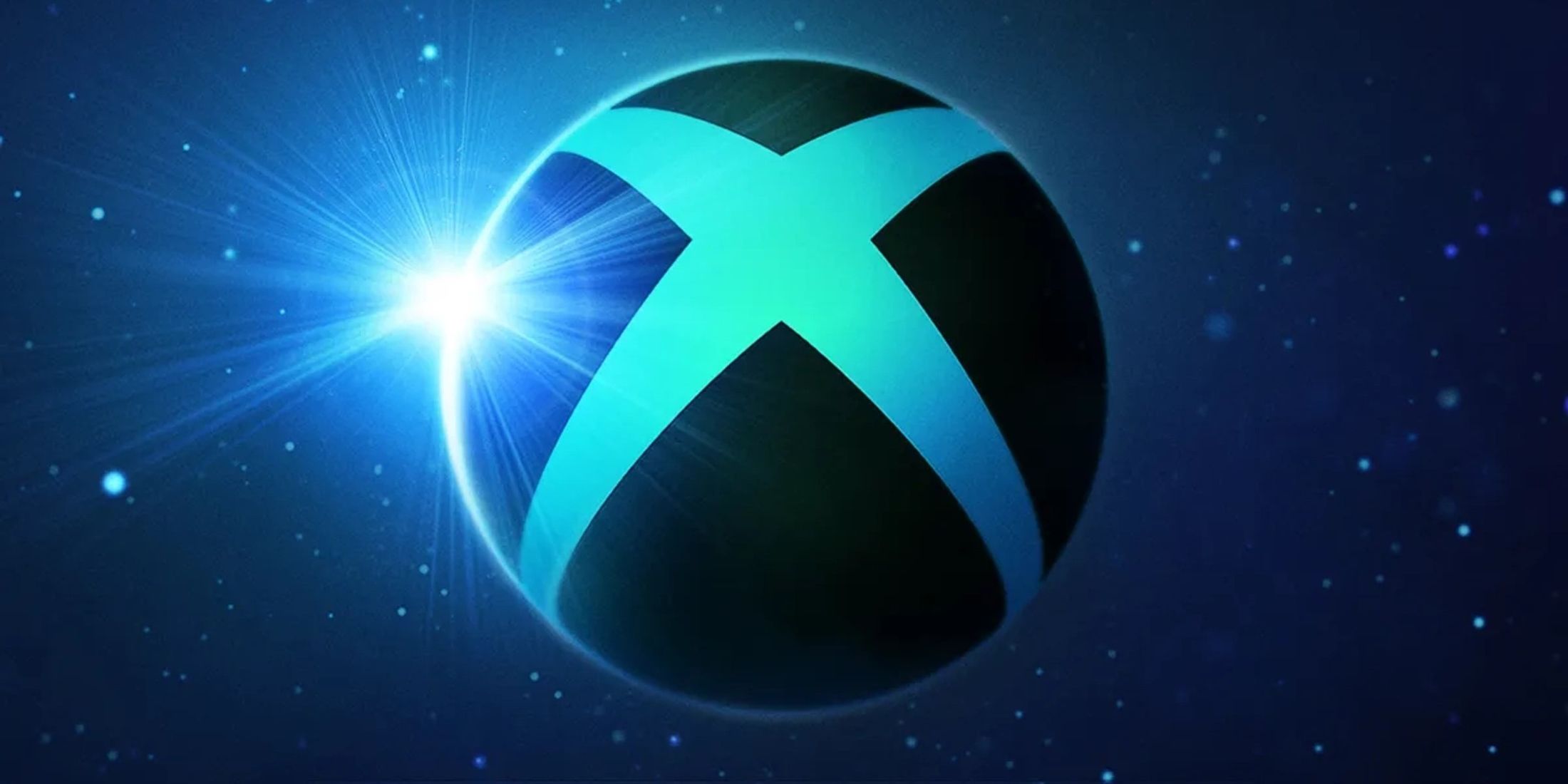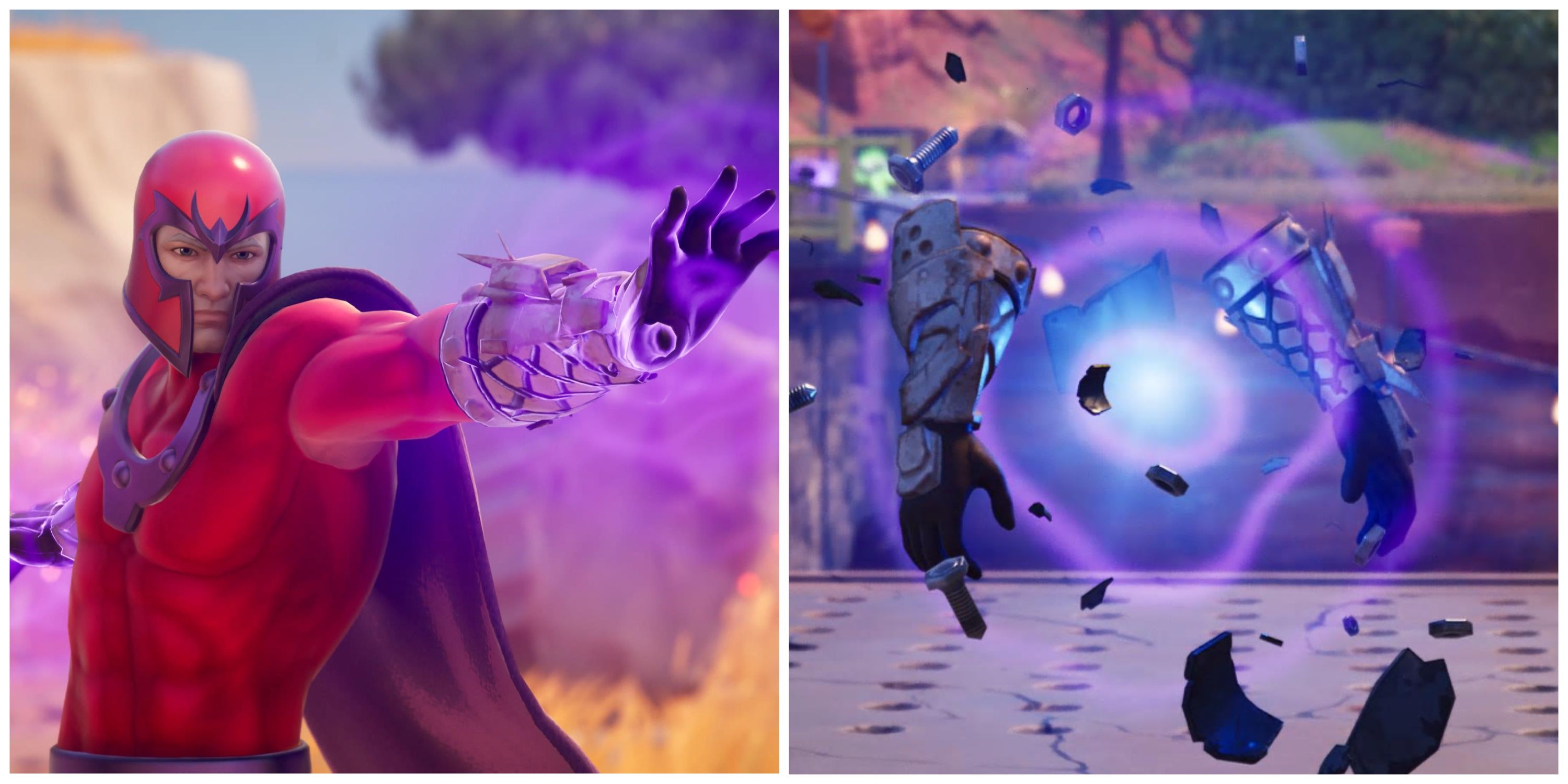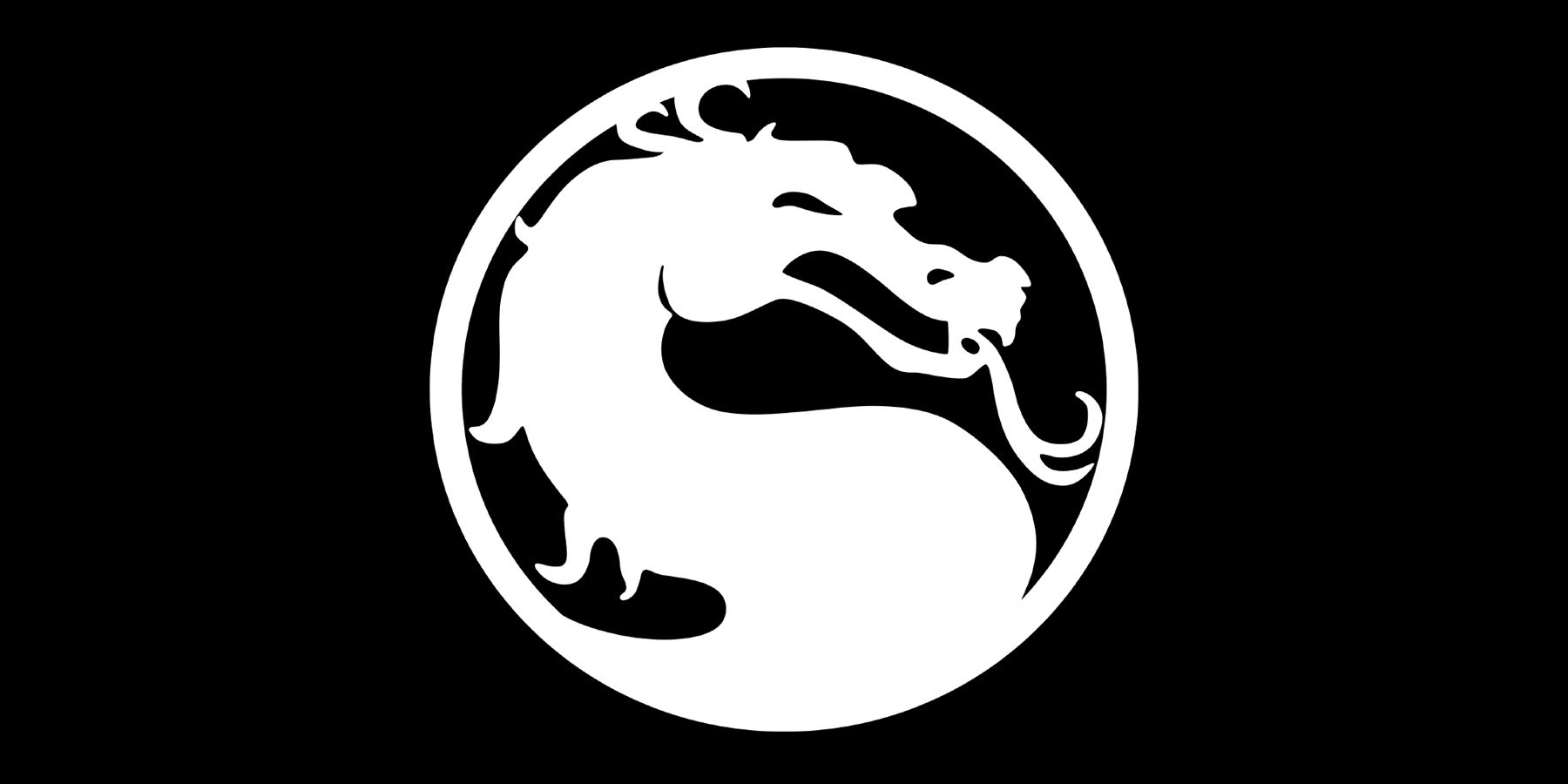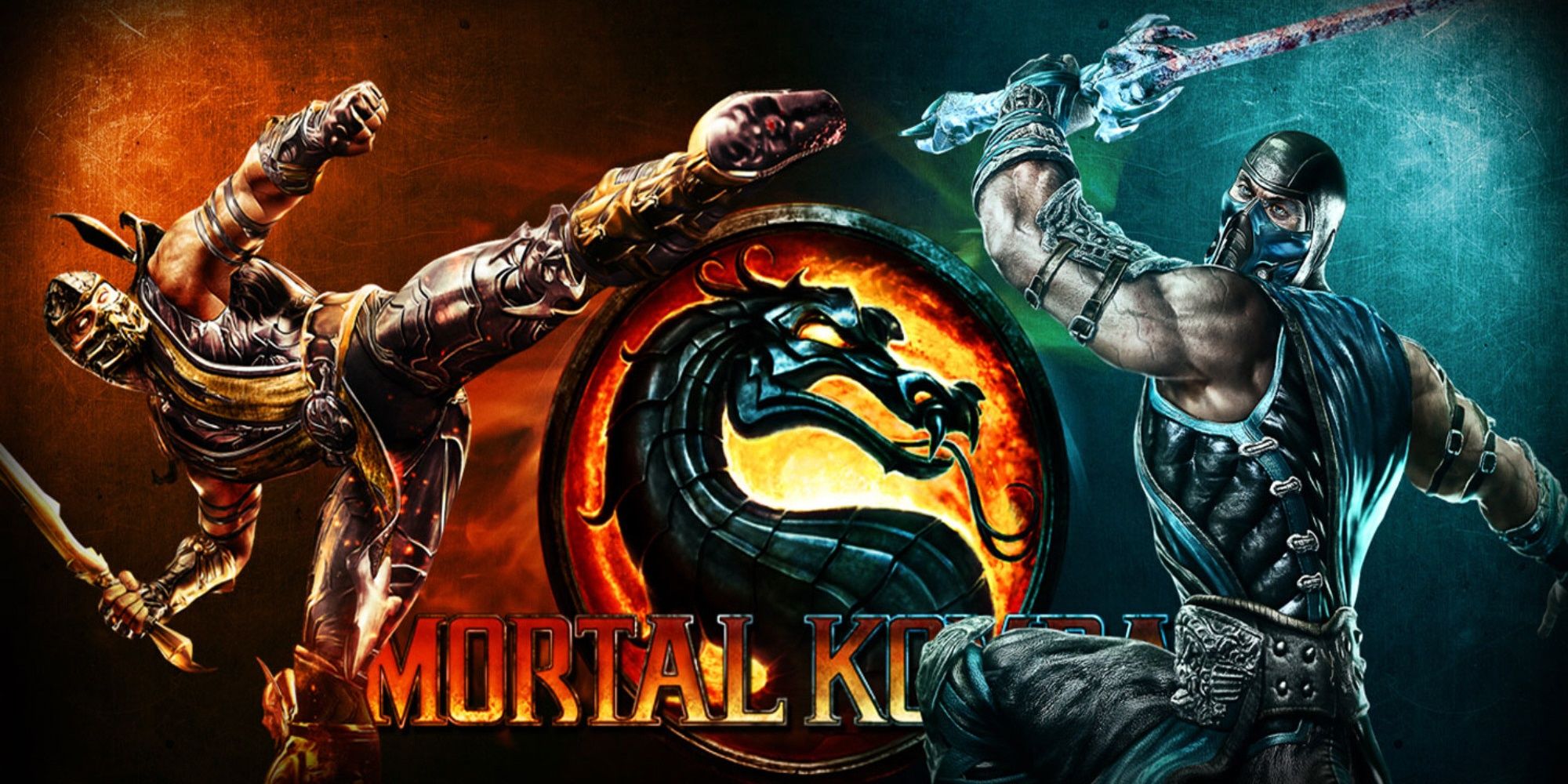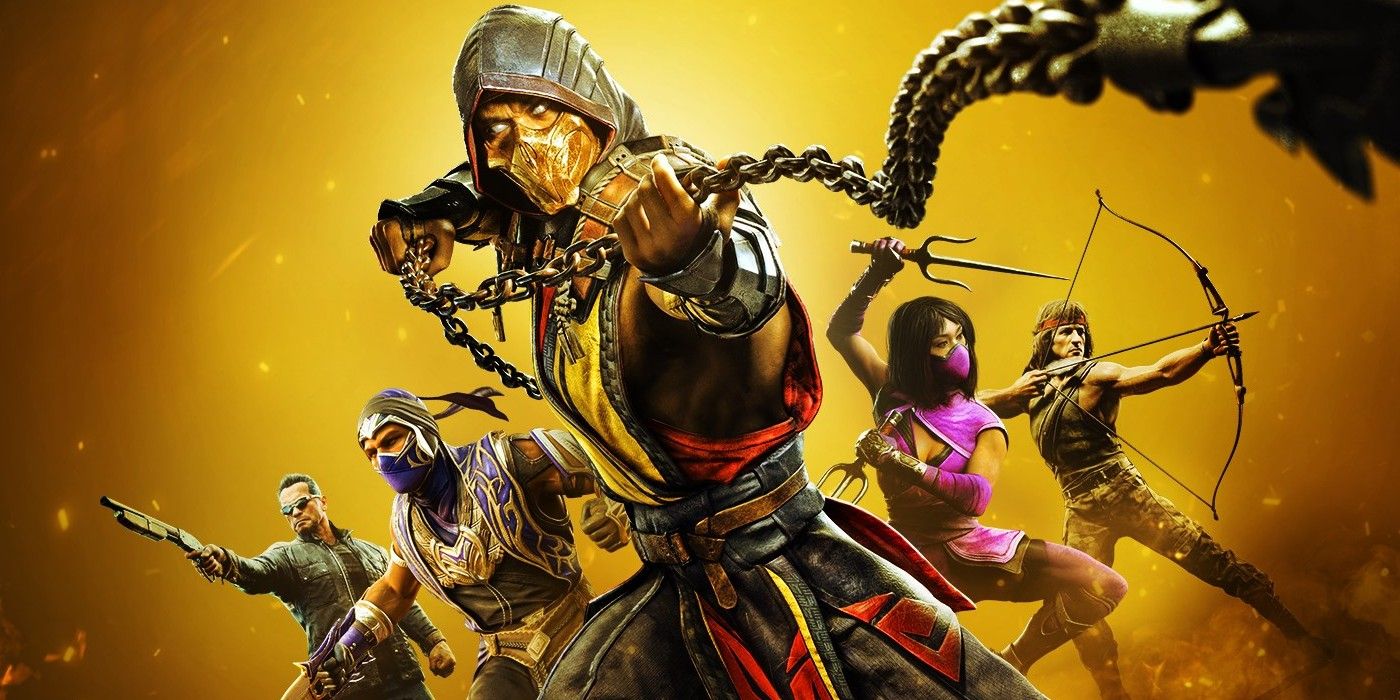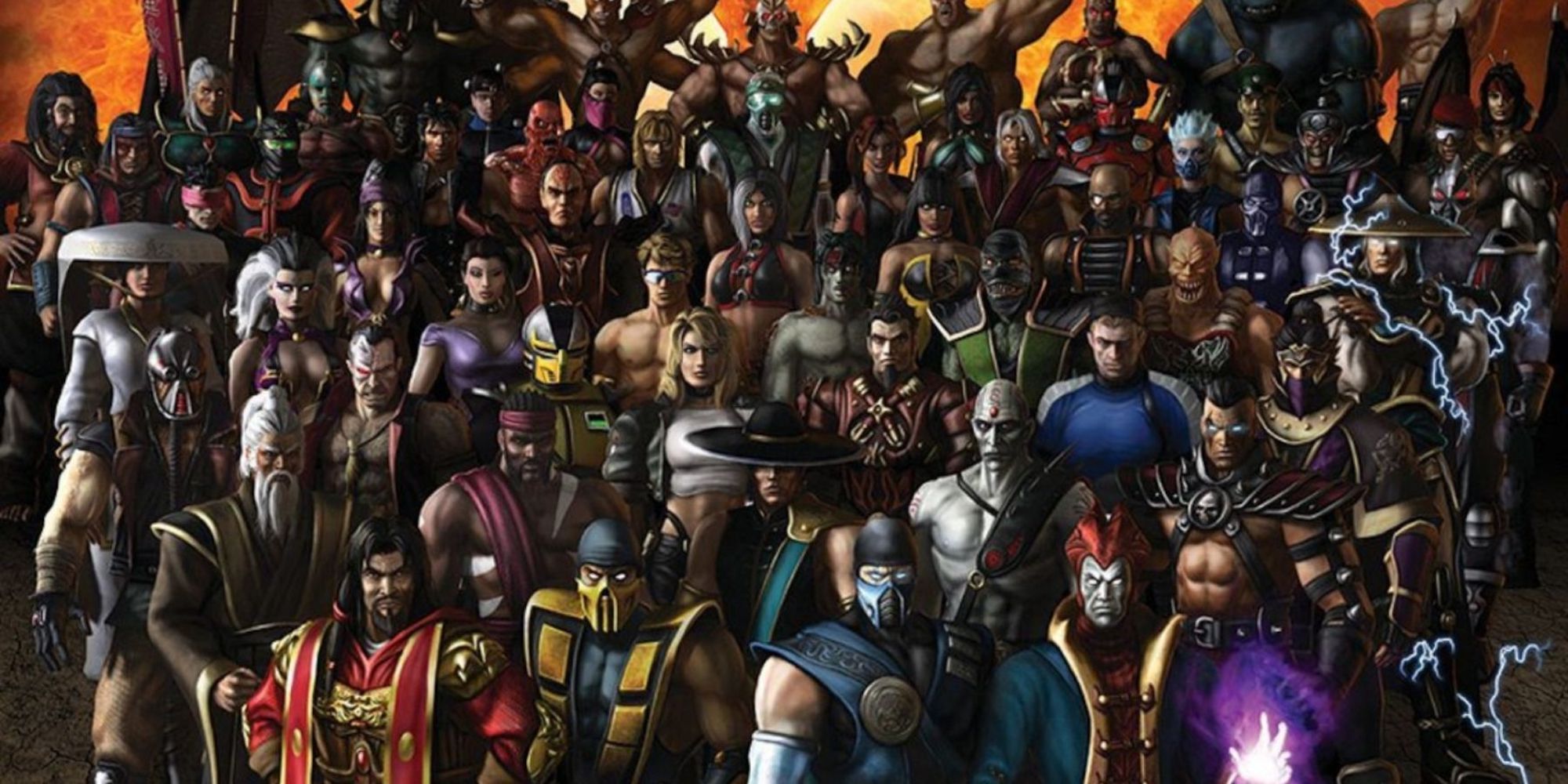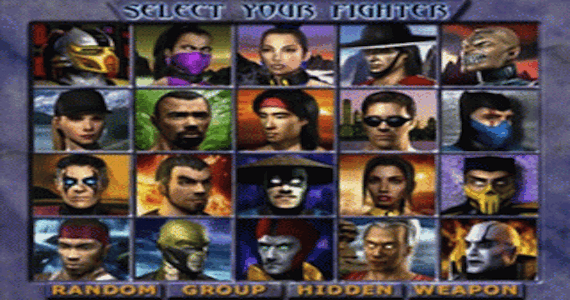Highlights
- Mortal Kombat 1 has the potential to be the biggest installment yet, with a fresh premise and a focus on honoring the past of the franchise.
- Games like Mortal Kombat 9 , Deception , and Mortal Kombat 3 are widely considered to be the best of the series, offering content-rich experiences and classic gameplay.
- Mortal Kombat X , Mortal Kombat 11 , and Shaolin Monks are fan-favorite titles that provide satisfying fighting game experiences and have become competitive heavy hitters.
Mortal Kombat 1's release is almost here, and its success is essentially guaranteed. A top performer on the chart of the most pre-ordered titles for PS5, NetherRealm Studios' latest foray into its iconic, gore-filled series has the potential to be the biggest yet. Having made the bold decision to reboot the timeline with the advent of Liu Kang's new world, Mortal Kombat 1 has one of the freshest premises fans could ask for, but that doesn't mean it isn't also honoring the past.
Continuing a trend with the recent announcement of notable kombatants from Mortal Kombat history, Mortal Kombat 1 seems to be focused on doing justice to forgotten parts of the franchise as much as moving forward. Bringing back fighters like Havik and Li Mei with new designs, many older fans have been shocked by the respect to past titles on display. With Mortal Kombat 1 pulling from other titles more than ever, the entire franchise as a whole has been put into perspective. Mortal Kombat has had a long history spanning several decades, but some releases have fared far better than others.
S Tier
Widely considered the best of the entire franchise, these games are content-rich experiences that have rewarded players for years following their releases. Classic video games by all measures, Mortal Kombat would never be the same without them.
Mortal Kombat 9 (2011) - A landmark moment for the series, this hard reboot erased the past mistakes of the 3D era in favor of bringing the gameplay back to its roots. A polished product through everything its visuals to combo potential, 2011’s Mortal Kombat is the peak of the franchise for most fans despite being over a decade old. A solid cinematic story mode, hundreds of bonus tower challenges, introduction of functional online, unique Mortal Kombat guest characters, and even features like its tag mode made Mortal Kombat 9 a true love letter to fans.
Mortal Kombat: Deception (2004) - An improvement on everything Deadly Alliance established before it, Deception is still praised as the peak of the series’ controversial 3D era. Featuring the most memorable Konquest mode, the side content of Deception was practically enough to split into a spin-off. Between features like its bold roster that took interesting risks, and the replayability of modes like Puzzle Kombat and Chess Kombat, Mortal Kombat Deception is still seen as the most complete Mortal Kombat package ever released for many.
Mortal Kombat 3 (1995) - Initially a massive disappointment upon its release, Mortal Kombat 3 was panned for having the audacity to exclude Scorpion of all characters. Held back by its lacking roster, everything would change when Ultimate Mortal Kombat 3 came around. Adding several more fighters than just Scorpion and improving the feeling of gameplay, Ultimate is still heralded as the peak of Mortal Kombat’s original 2D era. Mortal Kombat Trilogy would go on to further update the title with playable bosses and more mechanical changes, but this game is usually considered far less competitively viable than the perfection of Ultimate.
A Tier
Favorites of many gamers, these Mortal Kombat titles are satisfying fighting game experiences that fans still enjoy thoroughly to this day. This tier showcases some of NetherRealm's strongest efforts over the years which have become heavy hitters in competitive circles.
Mortal Kombat X (2015) - The follow-up to 2011’s classic reboot, this was likely the darkest entry the franchise has ever seen in terms of both tone and visual presentation. Famous for its experimental roster that included horror-themed Mortal Kombat guest characters and the fast-paced gameplay it brought to the table, Mortal Kombat X stands the test of time for those who enjoy its tone. The addition of rollback netcode helped to make its online experience smoother than ever before, but its standard soundtrack and story left more to be desired.
Mortal Kombat 11 (2019) - Released just a few years ago, the most recent title of the series is often compared to Mortal Kombat 2 in terms of gameplay. Beautifully rendered and extremely violent, Mortal Kombat 11 provides a wealth of content across its base game and DLC additions alike. While the less combo-centric style of its fighting isn’t the favorite of every fan, this title has still established itself through undeniable massive financial success.
Mortal Kombat: Shaolin Monks (2005) - The most well-received of all the Mortal Kombat spin-offs, Shaolin Monks brought co-op to the beat 'em up formula that the side games before had experimented with. The other spin-offs of the series may be seen as missteps of the past, but the story of Liu Kang and Kung Lao has separated itself from Special Forces. Considered a solid entry despite its differences with the mainline titles, Shaolin Monks is a fun MK adventure game that any Mortal Kombat fan should try out at some point.
B Tier
The middle of the road consists of games that are still somewhat worth playing for those interested in Mortal Kombat's history. These games may not be perfect, but they're still building blocks of the IP.
Mortal Kombat: Armageddon (2006) - The end of Mortal Kombat’s original timeline, Armageddon is mostly known for its ambitious roster that featured every single character who had ever appeared in any Mortal Kombat game thus far. Compromising quality for the sake of quantity, the gameplay of Armageddon took a step back from its predecessors in order to accommodate its huge cast. Many fans still struggle to forgive this game’s exclusion of the typical Fatality mechanic, but the last Konquest mode and ability to create a custom character dampens that loss.
Mortal Kombat: Deadly Alliance (2002) - The debut of the series on PS2, Mortal Kombat: Deadly Alliance brought a new 3D fighting engine to the series that would remain for years. Edgier and more detailed in a way Mortal Kombat was unfamiliar with, the fifth mainline entry played a major role in forming the identity of the modern franchise. A shake-up that saw Liu Kang fall to the titular team of Quan Chi and Shang Tsung, this game was a vast improvement over the blunders of Mortal Kombat 4.
Mortal Kombat Mythologies: Sub-Zero (1997) - A spin-off prequel to the first Mortal Kombat game, this beat em’ up title has never been very warmly received by fans due to its departure from the core formula. Similar enough to the 2D era games of its time, this entry is at least worth trying for dedicated fans of the series.
Mortal Kombat 2 (1993) - The follow-up to the original that started it all, Mortal Kombat 2 improved everything about what came before. This sequel would set several core aspects of the series’ identity in motion, and its cultural influence cannot be overstated. Lacking the combos that some players enjoy about other titles, it is a rather divisive entry among fans.
C Tier
The worst of the franchise, these games were limited by different factors that have made them less worth checking out for most players. Mostly consisting of relatively decent attempts for their time, the appreciation some hold for the bottom tier of titles is a testament to the dedication of Mortal Kombat's fans.
Mortal Kombat (1992) - The original game that started it all, Mortal Kombat brought a new level of violence to arcades that sparked controversy the industry had never seen. The first title in the series is more notable for its shocking nature than the quality of its gameplay, which contributed to the creation of the ESRB that rates games today.
Mortal Kombat 4 (1997) - The series’ final game in arcades, the fourth mainline outing introduced Quan Chi and Shinnok alongside several less memorable Mortal Kombat kombatants. Considered the worst mainline game by many fans, the updated Mortal Kombat Gold later helped to improve its quality in the long run. Still unimpressive by gameplay standards when compared to what came before and after, Mortal Kombat 4 is only worth checking out for diehard fans.
Mortal Kombat vs. DC Universe (2008) - A crossover that blended Warner Bros. properties, this game compromised the spirit of the franchise due to its T rating. As fun as it was to see fighters like Scorpion face off against iconic DC characters, the lack of proper violence and Fatalities made this a Mortal Kombat experience unlikely to return.
Mortal Kombat: Special Forces (2000) - This beat em’ up spin-off centered on Jax is the biggest departure from the spirit of Mortal Kombat, and the lowest point in the franchise for many fans. Suffering from poor quality in essentially every area, Special Forces has even appeared in several lists of the worst video games ever made. This game acts as a reminder of just how far Mortal Kombat has come in the last 20 years.
Mortal Kombat 1 will be released on September 19, 2023 for Nintendo Switch, PC, PlayStation 5, and Xbox Series X/S.

